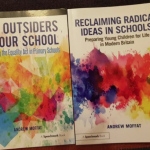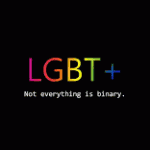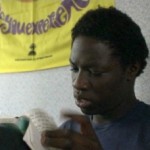 Use of the word gay to describe a person, event or object they don’t like or is in their minds dysfunctional can fuel prejudice, exacerbate homophobia and needs challenging. When we don’t challenge it, we usualise (see Keywords) homophobia and send an unspoken message that condones such language. Timing is crucial here. Where at all possible, stop the lesson, (or if overheard in a corridor and you feel confident to challenge the pupil (audibly so other students can hear) and make it clear that it is not acceptable. If that is all you can do at the time, don’t feel you haven’t made an impact. Pupils are not used to having this language challenged, because it has been condoned for so long in schools by being ignored. Making time to examine the language (even if it means lesson time is lost) sends clear messages to everyone – not just the pupil who made the remark. Remember, your classroom is a place for learning, and even if this diverts your teaching off topic, the pupils are still learning.
Use of the word gay to describe a person, event or object they don’t like or is in their minds dysfunctional can fuel prejudice, exacerbate homophobia and needs challenging. When we don’t challenge it, we usualise (see Keywords) homophobia and send an unspoken message that condones such language. Timing is crucial here. Where at all possible, stop the lesson, (or if overheard in a corridor and you feel confident to challenge the pupil (audibly so other students can hear) and make it clear that it is not acceptable. If that is all you can do at the time, don’t feel you haven’t made an impact. Pupils are not used to having this language challenged, because it has been condoned for so long in schools by being ignored. Making time to examine the language (even if it means lesson time is lost) sends clear messages to everyone – not just the pupil who made the remark. Remember, your classroom is a place for learning, and even if this diverts your teaching off topic, the pupils are still learning.
Ask questions like:
“Why do you think that that language is wrong?”
“What do you mean by ‘gay’?”
“Would you use ‘black’ or ‘muslim’ in the same way?” (e.g. “that’s so black/muslim” etc)
“Using language in that way which implies that there is something wrong with being gay. Do you think that’s true?”
Be careful when trying to understand the intent of the language. The issue isn’t cut and dry.
There are pupils who know it is homophobic and will use it deliberately to be homophobic.
There are others who do not understand it is homophobic esp. children with learning difficulties, who may be repeating what they have heard without understanding the context behind it.
Some pupils will use the word, knowing it’s homophobic though not really appreciating why, and with no more malicious intent then to be a part of the classroom parlance. This is what years of ignoring homophobia in schools has created. Kids who want to insult gays, kids who don’t know who gays are and kids who feel gays are so irrelevant to their life that ‘what’s all the fuss about?’
When good natured, smart, morally sound pupils use the word ‘gay’ to describe something that is bad and genuinely use it for that reason we can see how invisible LGB people have become in the world for them. To these pupils, LGB people are myths, practically fantastical. They see about as much sense in moderating their language, as an atheist is concerned about taking the Lord’s name in vain. These pupils are troubling because they’re lack of awarness will leave them completely unprepated for adult life in the modern UK. Be more concerned about these pupils than the ones who use homophobia to insult someone who is gay. At least they know that they’re language hurts, that at least is something you can work with.
In the first instance use of ‘I’ sentences are useful
“I will not tolerate the use of that behaviour/language/word”
“I find that attitude offensive/ unacceptable”
Other quick liners might be useful
“Do you know what you just said is homophobic? Why do you feel that it is acceptable?”
“That’s not acceptable. You know we will not tolerate homophobia any more than we would racism or sexism.”
“The school will not accept that behaviour/language/word”
“It is quite normal for people of the same sex to be attracted to each other”
You need to find a balance between telling them it’s against school rules and also explaining that despite rules and regulations, it’s still a horrid thing to say. Fear of sanctions should not be the guiding light, although sometimes it’s the only thing they’ll listen to.
Have you ever considered what it is like to be LGB and T and hear this stuff?
Have you considered that some of your friends, family might be LGB and T?
How would you react if you one of friends told you they were LGBT?
The education and labelling of unacceptable language takes time and needs to be done in a classroom with examples.
See lesson






